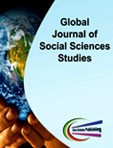Assessment of Implementation of the Environmental Sanitation Policy in the Federal Capital Territory (Fct) Abuja, Nigeria
DOI:
https://doi.org/10.20448/807.2.1.1.13Keywords:
Funding mechanism, Sanitation exercise, Perception, Policy implementing, FCT Abuja, Nigeria.Abstract
Sanitation issues have become a global concern in recent decades. Most of the environmental sanitation issues and challenges are as result of rapid population growth which has not been accompanied by a corresponding increase in the delivery of essential sanitation services such as water supply, sewerage and solid waste facilities capable of enhancing environmental sanitation practices. The resultant effects of these are unsanitary and unhealthy environmental conditions that are especially prevalent in the satellite towns of the study area. The Nigerian Government recognizes that a pleasant environment, which is hazard free and promotes healthy living, is a fundamental right of all Nigerians, and that problems of poor environmental sanitation can endanger improved productivity and foster inequitable share of national economic development. It is against this background that this study assesses the implementation of sanitation policy in FCT, Abuja. The objectives of the study are to examine the institutional and funding mechanisms for environmental sanitation and determining the extent of implementing the environmental sanitation policy in FCT. Simple linear regression analysis was conducted to examine whether sanitation policy has an overall impact on the level of implementation of environmental sanitation in the study. The correlation co-efficient (R) in the matrix=0.956; indicate a positive and strong correlation between the sanitation policy and level of implementation. The proportion of variation; R² =0.1182 with an overall effect of only 11.82%, this suggests that 88.18% of association within the model cannot be established. The combined effects indicate a significant relationship between the sanitation policy and its implementation in the study area.





